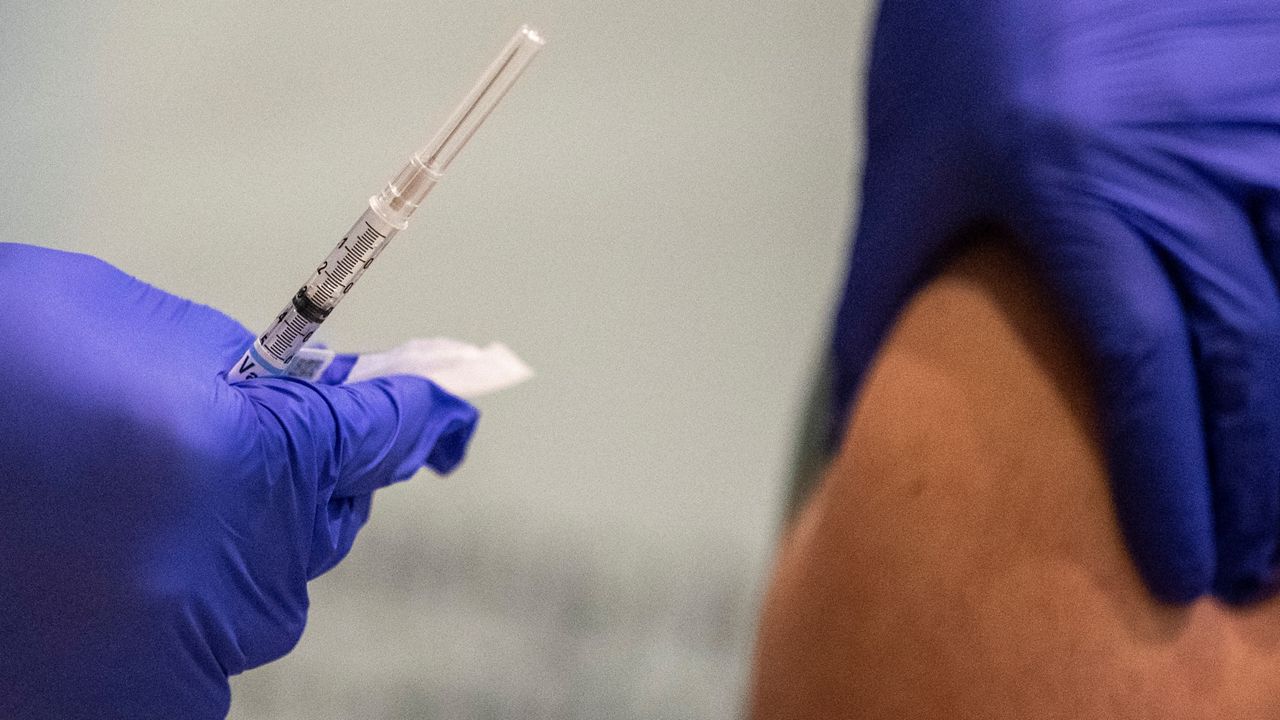TEXAS — With vaccination rates plateauing in the U.S. and the rapid spread of the Delta variant sparking a surge in new COVID-19 cases, new worries have emerged that we are far from beating the coronavirus pandemic.
In the U.S., the average of daily new cases has hovered at 12,000 for several weeks and is the lowest in the U.S. since the country started doing widespread testing. It’s certainly a far cry from the more than 300,000 cases in one day that we saw in early January during the last peak.
At the same time, hospitalization rates and death rates — now about 300 a day — continue to decline in the U.S.
But the Delta variant is fueling outbreaks in parts of the country where vulnerable populations, such as those who are still unvaccinated, are seeing rapid infection rate increases. This is a worrying sign particularly in the southern states, which lag behind the rest of the country in vaccination rates.
What does it mean for Texas? Here are a few trends to keep an eye on in the Lone Star State.
The Delta variant is in Texas and it's spreading. Last week, Texas counties reported a total of 25 cases of the Delta variant. This week, that number jumped to 120, according to the Texas Department of State Health Services.
One in four cases in the U.S. now is the Delta variant, which is more transmissible, and that means that those who aren’t vaccinated are more at risk, said Lara Anton, a spokeswoman for the Texas Department of State Health Services.
Not all diagnosed cases of COVID-19 are sequenced or tested, to determine which variant strain the patient had.
“Most of the time that means there was something unusual in the case or an outbreak in an area,” Anton said. Sequencing is also done in a “vaccine breakthrough” case, or when a vaccinated person gets infected, she added.
Recent studies have shown that many of the available vaccines in the U.S. are working against the Delta variant.
In Texas, 49.7% of the eligible population (age 12 and older) are fully vaccinated, and 57.8% of that population has had at least one dose, according to Texas Department of State Health Services data. In the U.S., 64% of the age 12 and older population has had at least one dose and 55% are fully vaccinated.
The Centers for Disease Control and Prevention reports that the U.S. administers about 1 million doses per day each week. July 4th is just days away, and at the current rate, it does not appear that the country will meet President Joe Biden’s goal of 70% vaccinated with at least one dose.
So far, only 20 states have reached that 70% mark, with Vermont leading the national charge with 85% of the 18 and older population having had at least one dose. There are 16 other states, including Mississippi and many of Texas’ southeastern state neighbors, that have worryingly low vaccination rates well under 60% for a first dose.
Texas is in a group of other states, including Florida and several states in the Midwest and Southwest, who are close at between 60% and 65%.
Still, a recent opinion poll from the Texas Politics Project at the University of Texas at Austin showed a steady decline in public worries about the pandemic’s effects. In a June survey, 27% of those polled said they were extremely or very concerned about the community spread of the coronavirus, compared with 49% of respondents in a February 2021 poll taken by the same group.
In Texas, it’s easier than ever to get vaccinated, Anton said. Most pharmacies have one of the three vaccines available, Pfizer, Moderna and Johnson & Johnson, and the state now supplies to primary care providers in smaller quantities, meaning many Texans can go to their regular doctor for the vaccine. Previously, the state was shipping out the doses in large quantities, which would have been difficult for small providers to administer before expiration.
“I’d find it hard to believe if someone said they couldn’t find the vaccine in Texas now,” Anton said. "The Delta variant is out there circulating. We need people to go get vaccinated, so it doesn’t mutate again."
The virus can only mutate if it infects the body, so the fewer places it can mutate the better, she added.



